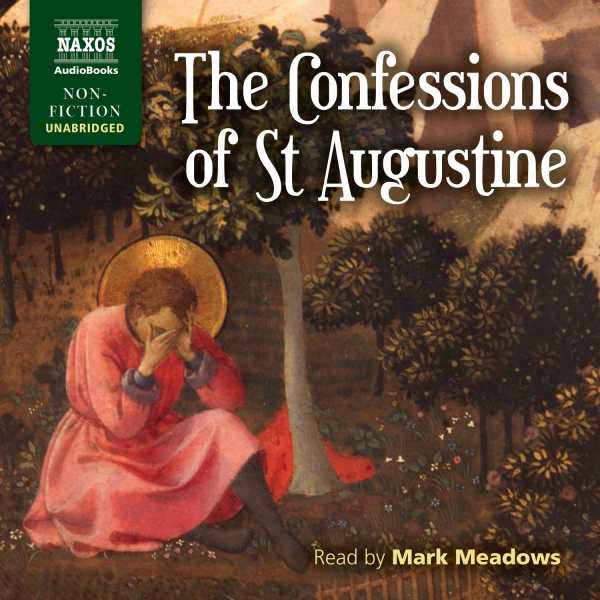
The Confessions of St. Augustine
This is a clear, conversational presentation of a classic Christian work.
In Naxos’s new audio recording of The Confessions of Saint Augustine, British actor Mark Meadows offers a compelling, earnest interpretation of one of the most influential works in Christian theology and Western literature.
Meadows’s delivery is measured and impassioned, and forwards an engrossing sense of urgency. St. Augustine’s Confessions was written to be read aloud, and this recording makes it clear how involving and immersive it is to listen to Augustine’s timeless words.
Born in Hippo in North Africa in 354 CE, Augustine lived during a critical juncture in the history of Christianity. With a brilliant mind and access to the leading thinkers of the day, Augustine wrestled with several conflicting worldviews in the early years of his life.
His narration recalls how he was raised a Christian before becoming attracted to Manichaeism in his teens; he also explored the neo-Platonic philosophies of Plotinus before returning to Christianity in his thirties. He wrote Confessions a decade later; in it, he reflects on the sinful and lustful choices he made during the early decades of his life. He also details his internal struggles with key tenets of Christian thought, from the natures of evil, beauty, and time to the experience of original sin, grace, and redemption.
Drawing from R. S. Pine-Coffin’s respected 1961 translation, Meadows animates The Confessions with an accessible and contemporary cadence. Augustine’s words sound as relevant and involving today as they were nearly 1700 years ago. The nearly fifteen hours of recording are logically divided into ten-minute segments that are clearly titled and easy to navigate.
In an era when we are deluged with information and often too eager to rush to judgment, Augustine’s Confessions offers a refreshing, engrossing contemplation of the deeper questions around human nature. Meadows’s clear, conversational exploration includes careful pauses that allow for reflection, providing an opportunity to internalize and wrestle with the sincere and brilliant questions raised in this classic work.
Reviewed by
Kristen Rabe
Disclosure: This article is not an endorsement, but a review. The publisher of this book provided free copies of the book to have their book reviewed by a professional reviewer. No fee was paid by the publisher for this review. Foreword Reviews only recommends books that we love. Foreword Magazine, Inc. is disclosing this in accordance with the Federal Trade Commission’s 16 CFR, Part 255.
